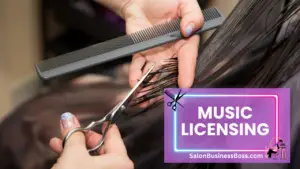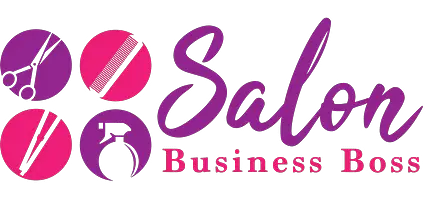Opening a tanning salon can be an exciting venture, but it comes with a set of legal responsibilities and requirements. Understanding the licenses and permits necessary to operate a tanning salon is crucial to ensure compliance with local, state, and federal regulations.
The licenses you need to open a tanning salon are Business License, State Cosmetology License, Facility Health Permits, Environmental Permits, Sales Tax Permit, Employment Permits, Signage Permits, Insurance Coverage, and Music Licensing. Compliance with these ensures legal operation and customer safety.
1. Business License
First and foremost, obtaining a general business license is a fundamental requirement for any aspiring tanning salon owner. This essential license ensures that the salon operates legally within the jurisdiction of the city or county where it will be located. The process of obtaining a business license may vary depending on the specific location, so it is crucial to research and comply with the local regulations.
To apply for a business license, the salon owner will typically need to submit an application to the appropriate government department or agency. The application may require various details about the business, its location, and its ownership structure. Additionally, some municipalities might request further information, such as a zoning permit or proof of insurance, to ensure the salon adheres to local laws and regulations.
Failing to obtain a proper business license can lead to significant legal consequences, including fines and potential closure of the salon. Therefore, aspiring salon owners should prioritize obtaining the necessary business license as one of the first steps in setting up their tanning salon venture.
2. State Cosmetology License
In most states, a cosmetology license is a vital requirement for individuals operating a tanning salon. This specialized license ensures that the individuals providing tanning services are adequately trained and qualified to meet the state’s health and safety standards.
To obtain a cosmetology license, aspiring salon operators typically need to complete a state-approved training program. These programs cover various topics related to tanning services, including skin health, safety protocols, equipment operation, and customer service. After completing the training, candidates must pass both a written and practical examination to demonstrate their competence in providing safe and effective tanning services.
It is important to note that cosmetology licenses are subject to ongoing education requirements to stay up-to-date with industry advancements and regulations. Regular continuing education ensures that salon operators remain knowledgeable about the latest tanning techniques and safety measures, allowing them to provide top-notch services to their clientele.
Maintaining a valid cosmetology license is essential for the legal operation of a tanning salon. Salon owners should check with their state’s cosmetology board or licensing agency for specific requirements and ensure compliance to uphold the salon’s reputation for professionalism and safety.
3. Facility Health Permits
For tanning salon operators, obtaining facility health permits is a critical step in ensuring the safety and well-being of both customers and staff. Tanning salons use specialized equipment, such as tanning beds and booths, which must comply with strict safety and sanitation standards. Facility health permits are issued after thorough inspections by health authorities to assess the salon’s compliance with these standards.
During health inspections, officials check the salon’s equipment for proper maintenance and functionality, ensuring that tanning beds and booths are in good working condition and emit safe levels of UV radiation. Additionally, they assess the overall cleanliness and hygiene of the premises to prevent the spread of infections and maintain a safe environment for customers.
Salon owners must cooperate with health inspectors and address any deficiencies promptly to maintain their facility health permit. Regular inspections are common, and compliance with safety regulations is paramount to avoid penalties or potential closure of the salon. Prioritizing the safety and well-being of customers and staff through facility health permits instills confidence in the salon’s professionalism and commitment to excellence.
4. Environmental Permits

Due to the use of UV light equipment in tanning salons, operators often require specific environmental permits to address environmental concerns. These permits focus on the safe operation and disposal of UV bulbs and equipment to prevent any adverse impact on the environment.
Salon owners should liaise with local environmental agencies to obtain the necessary permits and gain a clear understanding of the guidelines and protocols for responsible waste disposal. This ensures the salon’s operations align with environmental protection standards and minimizes potential harm to the surrounding ecosystem.
Proper disposal of UV bulbs and equipment is crucial to prevent hazardous materials from entering landfills or contaminating the soil and water. By following approved disposal procedures, tanning salons demonstrate their commitment to environmental stewardship and responsible business practices.
Obtaining environmental permits not only helps salon owners comply with legal requirements but also shows their dedication to sustainability and eco-consciousness. By ensuring environmental compliance, tanning salons can build a positive reputation in the community and attract environmentally conscious customers who value businesses committed to reducing their environmental impact.
Read more about: Building Beauty: How to Open a Small Salon
5. Sales Tax Permit
As part of their legal obligations, tanning salon operators must collect and remit sales tax on the services and products they provide to customers. To do so in compliance with state regulations, they must obtain a sales tax permit from the appropriate state’s tax authority. The process of obtaining this permit may vary from state to state, but it generally involves registering the business with the state and providing relevant information about the salon’s operations.
Salon owners must understand the specific sales tax rates applicable to their services and products and ensure that they charge customers the correct amount. Failing to obtain a sales tax permit or improperly collecting and remitting sales tax can lead to severe penalties and legal complications.
Keeping meticulous records of sales tax collected is crucial for periodic remittances and to facilitate potential audits. Timely and accurate reporting of sales tax is essential to maintain the salon’s compliance with tax laws and avoid costly consequences.
6. Employment Permits
If a tanning salon plans to hire employees to assist in its operations, obtaining the necessary employment permits is a crucial step. One essential requirement is obtaining an Employer Identification Number (EIN) from the Internal Revenue Service (IRS). This unique identifier is used for tax purposes and is necessary when reporting payroll taxes and other employment-related taxes to the IRS.
Compliance with state and federal labor laws is also essential when hiring and managing employees. Salon owners must be aware of minimum wage laws, overtime regulations, and other employment standards to ensure fair treatment of their workforce and avoid potential legal disputes.
Having proper employment permits and adhering to labor laws builds a foundation of legitimacy and trust for the tanning salon. It assures both employees and customers that the salon operates responsibly and abides by legal and ethical business practices.
By securing the necessary employment permits and adhering to labor laws, tanning salons can focus on providing excellent services and fostering a positive work environment for their employees. This commitment to compliance not only protects the salon from legal issues but also contributes to its long-term success and reputation within the community.
7. Signage Permits
Signage permits may seem like a minor aspect of opening a tanning salon, but they play a significant role in maintaining order and aesthetics within the community. These permits regulate the size, placement, and type of signage that businesses, including tanning salons, can display. Adhering to signage regulations ensures that the salon’s signs do not obstruct public views, impede traffic, or create visual clutter in the area.
Municipalities and local authorities establish specific guidelines for signage to maintain the visual appeal of the neighborhood and preserve public safety. By obtaining the necessary signage permits, tanning salon owners demonstrate their commitment to being responsible and law-abiding business operators.
Properly placed and compliant signage also aids customers in locating the salon easily, which enhances the salon’s visibility and accessibility. Aesthetic and unobtrusive signs contribute to a positive first impression of the salon and attract potential clients.
Considering signage permits from the beginning of the salon setup process prevents potential fines and legal issues that may arise from unauthorized or improperly placed signs. Taking this seemingly small step helps ensure that the tanning salon can operate smoothly and harmoniously within the community.
8. Insurance Coverage
Securing comprehensive insurance coverage is an essential aspect of operating a tanning salon. Comprehensive insurance coverage typically includes several components: general liability insurance, which protects against third-party bodily injury and property damage claims; property insurance, which covers damage to the salon’s physical property; workers’ compensation insurance, which provides benefits to employees injured on the job; and professional liability insurance, which protects against claims of negligence or errors in services.
The nature of tanning salon services, which involve potential risks like equipment malfunction or customer slips and falls, makes insurance coverage crucial. In the event of accidents or lawsuits, having proper insurance safeguards the salon’s financial stability and protects its assets.
Salon owners should carefully review insurance policies and choose coverage that adequately addresses the specific risks associated with their business. Engaging with reputable insurance providers who understand the unique challenges of the tanning salon industry is essential to ensure comprehensive protection.
By investing in insurance coverage, tanning salon owners provide peace of mind to both themselves and their customers, knowing that the business is adequately protected in the face of unexpected events.
9. Music Licensing

Creating a pleasant and relaxing atmosphere is crucial for tanning salons to provide a positive customer experience. Music often plays a significant role in achieving this ambiance. However, playing copyrighted music without proper licensing can lead to copyright infringement issues and potential legal troubles.
To use copyrighted music legally within the salon premises, tanning salon owners must obtain music licensing from the appropriate organizations, such as performing rights societies like ASCAP, BMI, or SESAC. These organizations represent the rights of music creators and ensure that they receive fair compensation when their music is used publicly.
Obtaining music licensing not only ensures compliance with copyright laws but also supports the music creators and artists who contribute to the salon’s atmosphere. It demonstrates respect for intellectual property rights and fosters positive relationships with the music industry.
Read more about: What Licenses Do You Need to Open a Salon: Ensuring a Legitimate Business
Conclusion
Opening a tanning salon requires careful consideration of various licenses and permits to operate legally and responsibly. Business owners should thoroughly research the specific requirements in their location and comply with all regulations to avoid fines, penalties, or legal complications. By obtaining the necessary licenses, permits, and insurance coverage, tanning salon operators can focus on providing excellent services while maintaining a safe and compliant business environment.
Frequently Asked Questions

1. Where can I apply for a business license for my tanning salon?
You can apply for a business license from the city or county where your tanning salon will be located. The application process may vary, so check the local government’s website or office for details.
2. How can I ensure my tanning salon complies with environmental regulations?
To comply with environmental regulations, work closely with local environmental agencies, follow guidelines for equipment operation and waste disposal, and maintain responsible environmental practices.
3. Are there any ongoing education requirements for maintaining a cosmetology license?
Yes, many states have ongoing education requirements to keep a cosmetology license active. Check with your state’s cosmetology board for specific continuing education requirements.
To learn more on how to start you own salon checkout my startup documents here.
Please note that the contents of this blog are for informational and entertainment purposes only and should not be construed as legal advice. Any action taken based on the information provided in this blog is solely at your own risk. Additionally, all images used in this blog are generated under the CC0 license of Creative Commons, which means they are free to use for any purpose without attribution.

About the author. Entrepreneur and Salon Business Fan.
Hi! I am Shawn and I am a happy individual who happens to be an entrepreneur. I have owned several types of businesses in my life from a coffee shop to an import and export business to an online review business plus a few more and now I create online salon business resources for those interested in starting new ventures. It’s demanding work but I love it. I do it for those passionate about their business and their goals. That’s why when I meet a salon business owner, I see myself. I know how hard the struggle is to retain clients, find good employees and keep the business growing all while trying to stay competitive.
That’s why I created Salon Business Boss: I want to help salon business owners like you build a thriving business that brings you endless joy and supports your ideal lifestyle.

